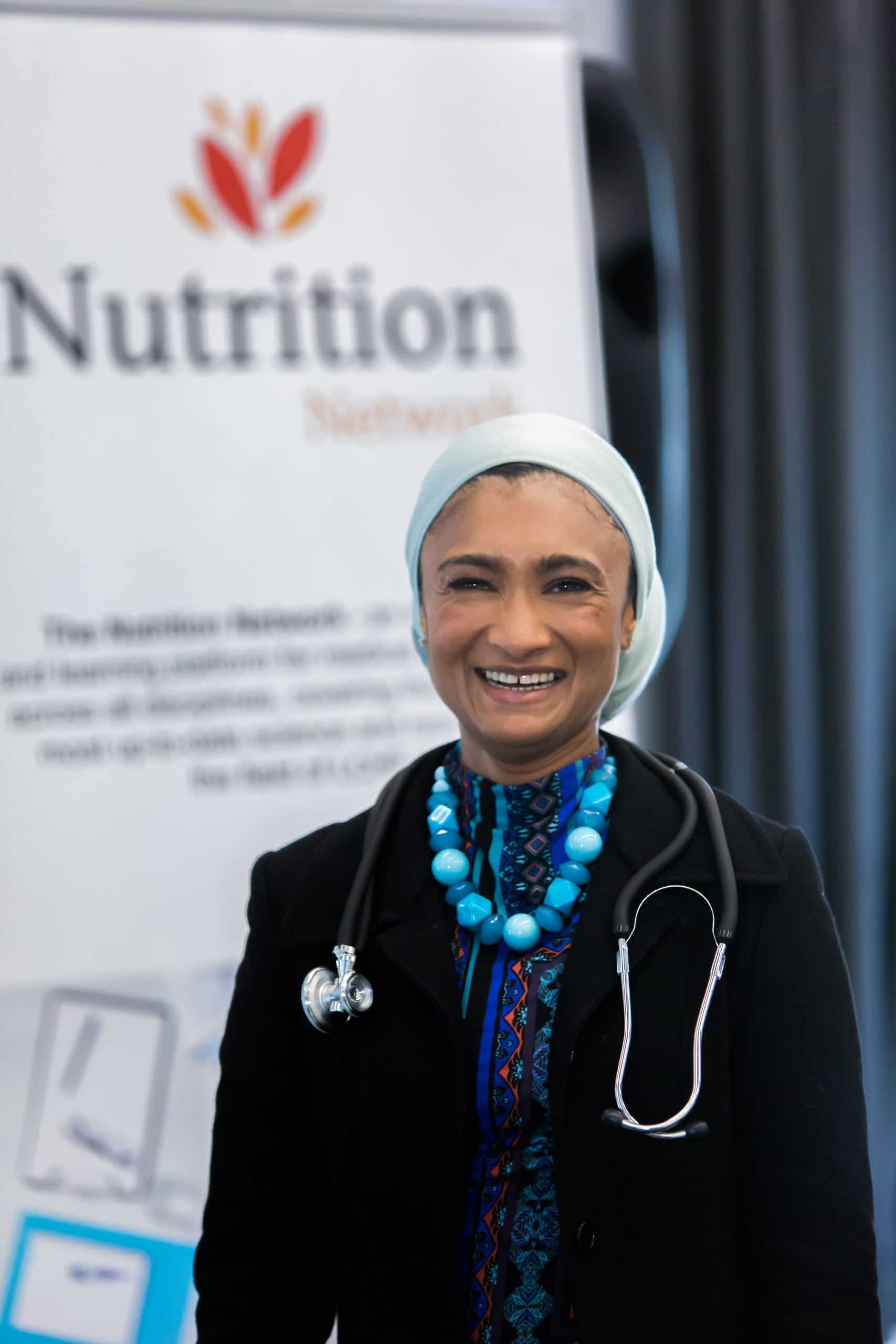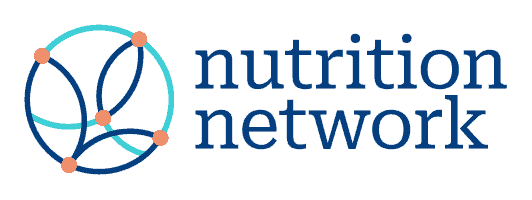
Dr Hassina Kajee joined The Noakes Foundation (TNF) about 4 years ago, and is a founding member of Eat Better South Africa (EBSA), the foundation’s community outreach programme, and is a Medical Director of the Nutrition Network. Described by her colleagues at TNF and EBSA as passionate and caring, her drive and commitment has made her a catalyst to the journey that many South Africans are undertaking to reclaim their health. To cross this treacherous frontier, these brave souls have to face farcical medical and nutritional advice, patient blaming, addictions, contradictions, temptations… and, the stress related to this. These obstacles compound the stresses of daily life and in many instances lead to patients abandoning their journeys.
With Dr. Hassina’s webinar, the impact of stress on health and weight, scheduled for this week, we thought it a good idea to learn more about her and her journey towards health.
A practicing medical professional, Director at TNF and Nutrition Network (NN), a mother of two and a devoted wife, Dr. Hassina is no stranger to stress. Having first-hand experience of working in the stressful environment of the High-care unit of the emergency ward, Dr. Hassina says that carers and health care workers are often neglected in terms of self-care:
“If more doctors and health care workers are able to understand the root of stress and take the steps necessary to actually live more mindfully moment by moment instead of from one patient to the next, then we can better serve our patients and communities.”
Medical Calling
In these words, Dr Hassina perfectly sums up the essence of the medical profession, which is to “serve our patients and communities”. Therefore, something inherent in the urge for someone to study medicine makes this urge more than a mere choice of profession. Rather, a calling. Something which you are born into, or destined by fate.
Dr. Hassina’s journey to medicine is no different. The first time that she learned about the cardiac system, she was compelled to make it her life’s work to understand the human body, illness and to get to the “root of the problem”.
“From that moment, there was no other choice for me. I have a deep yearning to understand the body and with regards to illness, I like to get to the root of the problem.”
Turning point to Healthy-Fat/Low-Carbohydrate (HFLC) advocate
It is fitting that it was the cardiac system that beckoned Dr. Hassina into the medical world. With the prevalence of metabolic syndrome these days (of which cardiovascular disease is one of the complications), more and more research is pointing to diet as the cause and cure. One could argue that these dietary changes should be the focus of all physicians. However, this is not the case. While the medical world idly stands still, going “from one patient to the next”, there are only but a handful of doctors who are willing to face the industry machine and tackle the problem heads on.
According to the Stats-SA report, Mortality and causes of death in South Africa, 2016: Findings from death notification, Diabetes mellitus is the 2nd leading underlying natural cause of death, accounting for 5.1%-5.5% of deaths due to natural causes in 2014-2016 (https://www.statssa.gov.za/publications/P03093/P030932016.pdf). Diabetes being a complication of metabolic syndrome is clearly claiming more victims. An epidemic, in the true sense of the word.
Dr. Hassina describes how many patients during her time at the high care unit were there for myocardial infarcts, diabetes, strokes and were but in their late 20’s and early 30’s.
“Some of these patients died and it was the most heartbreaking thing to inform the young spouse and children of their partner/parents death! What shocked me was how young people with metabolic syndrome were.”
The situation is clearly dire. Shocked to the core, Dr. Hassina lived up to her calling, to get to the root of disease.
“Their kids came to visit, always with a packet of crisps in hand, mostly overweight!”
Something had to give. If humans were “such highly specialised creatures, why is it that we become highly irritated beings who cannot function by lunch time”. It was a personal experience that led Dr. Hassina into the direction of HFLC lifestyle approach disease. She developed glucose intolerance during her pregnancy. This condition pushed her toward the HFLC lifestyle.
“I knew I had to LIVE the LCHF lifestyle in order to be able to prescribe it.”
The results of this change astounded Dr, Hassina: “I solved the riddle when going LCHF! I didn’t have to eat all day! I weighed 49kg, I had LOADS of energy and mental clarity, my muscles were more defined even though I did yoga 2-3 times a week and not an hour running or spinning EVERY day, my post baby belly disappeared in 6 weeks vs. 18 months with my 1st child.”
After seeing her results and doing research, HFLC presented itself as the answer hiding under everyone’s noses. Knowing this, Dr. Hassina could not turn back. She started prescribing dietary changes to her patients, started a small clinic on the side, and founded EBSA along with Jayne Bullen (COO of TNF) and Euodia Samson, and as EBSA had their first intervention in the community of Ocean View.
Everything made sense. Years of sacrifice in the hospital for patients, and she found the answer. A turning point for herself and South Africans.
“When I saw people able to lose over 10 kg in 5 weeks on a relatively meager budget, my life changed. Exasperation and frustration turned to joy and optimism!”
Impact of stress
Changing one’s diet is but one square of the cube of a healthy lifestyle. The physical impact of chronic stress needs to be addressed as well. According to this IOL report, work-related stress and major depression, burnout and anxiety disorders are costing SA’s economy an estimated R40.6 billion a year – equivalent to 2.2 percent of gross domestic product. Huffington post reports that there has been an increase in the number of stress-related insurance claims for incidents such as stroke and attempted suicide in Gauteng. The same article reports that professionals surveyed last year in Profmed’s Stress Index claimed that stress had both an emotional and physical impact on them, with 10.9 percent of the respondents taking time off due to stress-related illness.
Stress seems to be another silent killer that our society just cannot get under control. As mentioned above Dr. Hassina has seen stress for what it really is. Doctors and health care workers and other type of carers have to deal with this head on. She has realised that charity begins at home. To ensure that her patients get the best care there is, Dr. Hassina has started a range of self-care practices that has slowly become part of her routine.
The practices focus on stress relief and mindfulness practices and include breathing practices, meditation, yoga, and mindfulness touch points (to center yourself in the moment). The practice of looking after your state of mind is of utmost importance. Dr. Hassina says: “Self- care is the most important place to start. I love my morning routine, yoga, making myself a cup of tea! I spent most of myself pouring attention to family, friends, patients. I now realise why I have to put the oxygen mask on myself first!”
The upcoming webinar will focus exactly on the role stress plays in our deteriorating health as individuals. Chronic stress, as seen in the above statistics, not only plays a role in weight gain, but also has a tremendous impact on the body, psychologically.
Dr. Hassina’s webinar is a must for people who wish to reduce stress, physicians who treat patients who have the metabolic syndrome, cardiac disease and pre- and post-menopausal women (due to the hormonal impact of stress).
Considering the statistics regarding diabetes in conjunction with the stress statistics mentioned previously, it is clear that physician’s need to adopt a holistic approach to treat the diseases of civilisation that are plaguing us today. TNF and NN are on the frontline of this battle. Slow but surely the tides of public policy are changing.
Home life
Dr. Hassina and her husband are both devoted caring parents. They have put routines and structures in place to ensure that their children and family receive the best that they can give in terms of nutrition, time and attention. Reading how Dr. Hassina describes the moments shared in the family, there is a realisation that the things that create the stress and circumstances that lead to sickness of our population, is not worth it.
She describes family walks, afternoons playing board games as a family, and cheerful family get-togethers. As for the “restrictive” (please read with a note of sarcasm) HFLC diet their household is thriving on it. Her husband found the change empowering due to the appetite control, and both their children’s eczema was cured.
In Conclusion
Dr. Hassina is an example to all of us that life is what you make of it. It is becoming ever more apparent that for some time people have been given the wrong tools to get their lives in the shape they want it. Bad nutritional advice, even worse medications, stresses over career satisfactions. People have been following these to not only their own detriment, but also to that of their families. It is time for people to reclaim their health. So share the word regarding the webinar and be sure to tune in to find out more about the adverse effects of chronic stress on your health.
To quote the doctor: “There are NO mistakes, only learning opportunities.”
Join Dr Hassina Kajee – Carb Free MD this Thursday 30th of August at 21:00 (SAST) as she presents a live webinar on “The Impact of Stress on Weight & Health”
$20 gains you access, FREE for Nutrition Network students enroled in the training.
Register by following this link: https://bit.ly/2MbcykY
